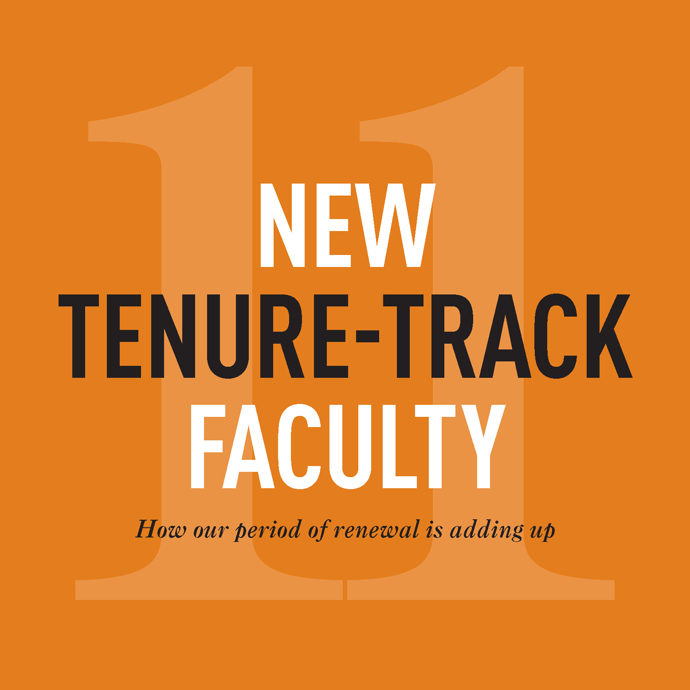
Incoming
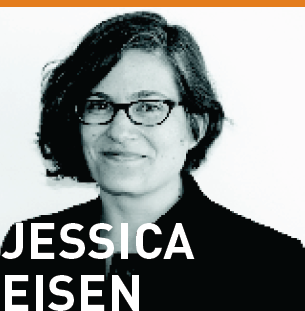 Jessica Eisen
Jessica Eisen
Renowned Animal Law Scholar
Jessica Eisen brings with her an impressive academic background, with a focus on law and social change in the area of animal agriculture.
Prior to undertaking her doctoral work at Harvard, Eisen completed an LLM at Osgoode Hall Law School at York University, a JD at the University of Toronto Faculty of Law and a BA in political science and human rights studies at Barnard College, Columbia University.
Her work has been published in the Journal of Law and Equality, the Animal Law Review, the Canadian Journal of Poverty Law, Transnational Legal Theory and ICON: The International Journal of Constitutional Law, and has covered topics ranging from Canadian and comparative constitutional equality law to legal dimensions of humananimal relationships.
Although Eisen is a member of the Ontario Bar and has practised in the areas of human rights law, employment law and civil litigation, her true passion is for teaching and research.
"While an advocate is bound to represent a particular position, a scholar is really invited to delve deeply into all sides of a question. But because legal academia is always tethered to legal practise and force, it is always accountable to 'real life,' which makes it so exciting and so important," said Eisen.
Eisen's fields of study include equality law, comparative constitutional law, feminist legal theory, and law and social movements, but one of her primary areas of research focuses on the legal treatment of farmed animals in industryscale operations and the exploration of social justice problems related to human-animal relationships.
"My own research has explored the place of animals in constitutional theory, and has applied feminist and critical lenses to better understand the ways that law shapes animal agriculture. I am eager to contribute to UAlberta Law's burgeoning animal law research community, while also connecting with the impressive scholars working on human-animal studies and critical animal studies in other departments at the university."
However, scholarly research won't be her sole focus. Eisen's hope is that, through teaching, she will empower and equip a new generation of lawyers with the resources and tools needed to succeed in their chosen careers.
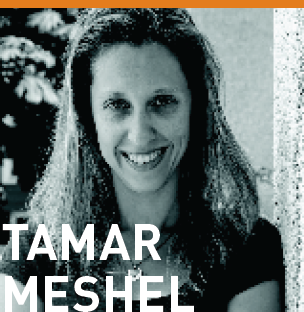 Tamar Meshel
Tamar Meshel
International Water Law Expert
Tamar Meshel's doctoral research in international water law and dispute resolution examines the global impact of interstate freshwater disputes and their regulation; she'll defend her thesis, titled: "International Law and Transboundary Freshwater Resources: A Dispute Resolution Perspective," this summer.
Meshel became interested in international water law and freshwater disputes during a graduate fellowship at The Carter Center in Atlanta in 2013, where she researched the Nile River dispute between Ethiopia and Egypt. With the rising scarcity of freshwater and the growing risk of disputes over its allocation and use, Meshel said she decided to dedicate her doctoral research to this global problem and the potential role of international law in its resolution.
Meshel also holds an LLM from University of Toronto Faculty of Law, and a JD with a business law concentration from the University of British Columbia School of Law. Her undergraduate degree, from U of T and Santa Monica College, is an honours bachelor of arts in political science.
Of Israeli and Polish descent, Meshel has lived and worked around the world. Throughout her studies, she aimed to gain a better understanding of both Canadian and international law.
"I have a natural curiosity to explore and throughout my travels I've been exposed to many different legal systems and cultures," she said.
Over the past year, Meshel has been a researcher with UBC's Decolonizing Water Initiative and a Schulich Fellow at the Dalhousie University School of Law, where she was nominated for the DLLA and LLS Award for Excellence in Teaching Law.
She's also worked as a pro-bono legal advisor with the Jerusalem Arbitration Center in Israel and Palestine; as deputy counsel with the International Court of Arbitration of the International Chamber of Commerce in Paris; as an articling student and associate with Fasken Martineau DuMoulin LLP in Vancouver; and as a research fellow for the Department of International Law and Dispute Resolution at the Max Planck Institute for Procedural Law in Luxembourg.
Her work has been published in The Law and Practice of International Courts and Tribunals, Questions of International Law and Water International, to name a few.
"Academia combines teaching, research and service, all of which I love, and I'm very excited to begin my new chapter at U of A," she said.
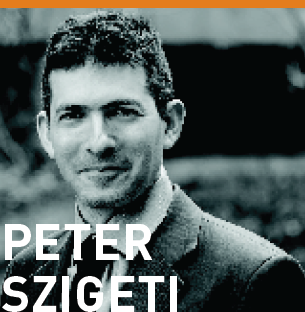 Peter Szigeti
Peter Szigeti
Prominent International Property Lawyer
For Peter Szigeti, the questions he finds most interesting are the interactions between property, public law, the natural environment and geographical already a focus of interest in Alberta. By joining UAlberta Law, he hopes to learn from and engage with his colleagues' thoughts and experiences.
"I have been struck by both the ambience of friendliness and collegiality at the University of Alberta, and the impressive legal research work that they have created," he said.
Szigeti holds a Master of International Law and International Organizations degree from the Sorbonne, and a JD in Hungarian Law from ELTE University in Budapest. He received his SJD from Harvard University and was both a Boulton Fellow at the McGill University Faculty of Law and a Max Weber Postdoctoral Fellow at the European University Institute in Florence, Italy.
He also practised as a corporate lawyer in Hungary and served as a consultant in the Fisheries and Aquaculture Policy and Economics Division of the UN Food and Agricultural Organization Fisheries Department in Rome.
His research spans geo-ecological information in property, environmental and international law, conceptions of space in public law and immigration, mobility, belonging and identification.
Szigeti is hoping his wide range of experiences from around the world will best equip him for the classroom.
"I'm looking forward to expanding my teaching portfolio to include several courses that involve law and geography and to experimenting with teaching methodologies that invite the maximum amount of engagement, interest and creativity from the students," said Szigeti.
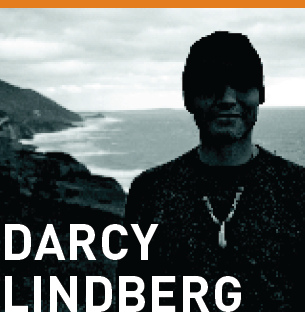 Darcy Lindberg
Darcy Lindberg
Prominent Indigenous Law Academic
Lindberg's doctoral research, supervised by John Borrows, Canada Research Chair in Indigenous Law, focuses on the constitutional and legal theory of Plains Cree peoples in relation to the land, water and animals, and the transsystemic relationships with Canadian constitutional law.
Lindberg, who is Plains Cree from Wetaskiwin, holds an LLM from the University of Victoria; his thesis explores Cree legal orders through an examination of ceremonial rules of procedure and the transformation of gendered protocols. His article "Transforming Buffalo: Plains Cree Constitutionalism and Food Sovereignty" will be published in a forthcoming collection on food law in Canada.
Lindberg is looking forward to furthering his academic background by engaging with and learning from students and faculty members when he begins teaching next winter.
"Seeing the legal challenges some of these communities face, I'm excited to work with other experts in the field," he said. "I never would have guessed the amount of thinkers I've met who are doing the same sort of work."
After graduating with an English degree from Augustana University College, Lindberg spent five years with the government of Alberta, working closely with First Nations and Métis groups in Alberta. Once he connected with the people and saw some of the systemic problems facing different communities, he decided a law degree would best equip him to help.
He said his position as an academic scholar is one he does not take lightly.
"It's a really honoured position, when you're being asked to help. I feel like I'm in that role; I'm serving our communities, engaging with them, and hopefully I'm helping bridge the gap," he said.
Previously, Lindberg practised with Davis LLP in Whitehorse as an articling student and then lawyer, and he says the first-hand experience he gained during his time in Northern Canada shaped his studies and research. In addition, for nearly 15 years he's been involved with Alberta's Future Leaders Program, an Indigenousfocused youth program that helps build sport, recreation and cultural programs in Indigenous communities. He has also worked as a research assistant in the Indigenous Law Research Unit and cultural support co-ordinator at the University of Victoria Faculty of Law. "It will be great to work with the students and professors and to be a part of the vision people are talking about here," he said.
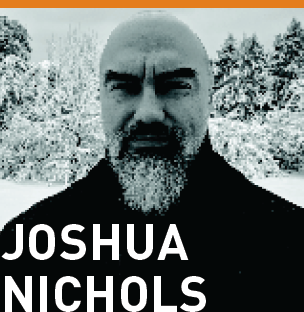 Joshua Nichols
Joshua Nichols
Indigenous Legal Issues Expert
Originally from Treaty 8 territory in northeastern British Columbia (he is Métis), Nichols has achieved a number of notable academic accomplishments. He has two PhDs - one in law from the University of Victoria and another in philosophy from the University of Toronto.
Nichols is a UAlberta alumnus, having completed an MA in sociology and a BA in political science at the university. While his JD is from the University of British Columbia, he has numerous connections to UAlberta Law faculty members - George Pavlich, a professor of law and sociology, was a reader for his MA and his path has also previously crossed with assistant professor Hadley Friedland and incoming faculty member Darcy Lindberg.
"Going back to the U of A for the interview and meeting people again was like coming full circle," he said. "It's nice to have active connections so I can hit the ground running."
Nichols is very familiar with the areas UAlberta Law has prioritized in recent years, including Aboriginal and Indigenous Law and educating students on related legal issues.
"Having Hadley and professor Catherine Bell and hiring Darcy puts U of A up there as a leader in teaching this area of law. It signals that the university is taking these issues very seriously," said Nichols.
Nichols' dissertation at UVic was entitled "Reconciliation and the Foundations of Aboriginal Law in Canada," and he is also a coinvestigator and Working Group Chair of Policy Innovation for a $2.5M SSHRC Partnership Grant entitled "Decolonizing Water: Building Resilient Water Futures."
He's also a research fellow with the Centre for International Governance Innovation's International Law Research Program, where he is researching the possible implications of the United Nations Declaration on the Rights of Indigenous Peoples for constitutional law. His research interests include Indigenous governance, international law and governance, plurinational federalism, constitutional law and the history of political thought.
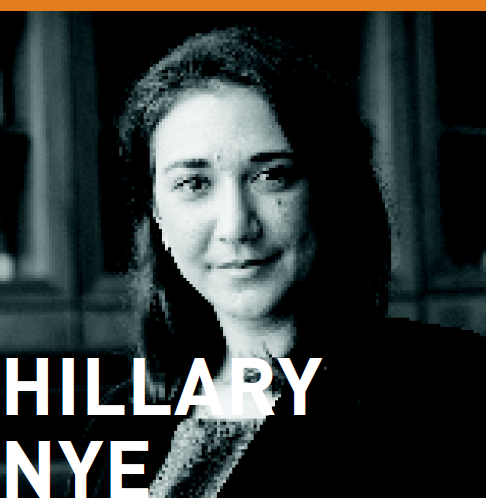 Hillary Nye
Hillary Nye
Legal Philosophy Expert
Hillary Nye completed her JSD at the New York University School of Law. Her dissertation, titled "Legal Philosophy in Quest of Itself: A Rule-of-Law Centred Approach to the Philosophy of Law," argued that normative questions that have practical upshots for our lives should be paramount in legal philosophy.
The fact that UAlberta Law offers jurisprudence as a compulsory course was a crucial factor in her decision to join the Faculty.
"It's so valuable that students are able to learn about moral and political questions that are related to the profession they're going to join," she said. "Legal philosophy allows us to question what law is and what it should be, and to bring a critical perspective to the practice of law."
Nye also holds an LLM in legal theory from New York University School of Law; a bachelor of arts from the University of Queensland in Brisbane, Australia, with majors in philosophy and political science; and an honours bachelor of laws, also from the University of Queensland.
Before that, she held a visiting doctoral researcher position at the University of Toronto Faculty of Law.
Her peer-reviewed articles have been published in the Oxford Journal of Legal Studies and Canadian Journal of Law and Jurisprudence, and include the pieces, "A Critique of the Concept-Nature Nexus in Joseph Raz's Methodology," and "Staying Busy While Doing Nothing? Dworkin's Complicated Relationship with Pragmatism."
Nye is also an experienced presenter, having spoken on such topics as the rule of law, philosophy of law, pragmatism and philosophical methodology. She said that while researching and writing are both important components in the world of academics, the opportunity to encourage and promote the exchange of ideas can't be understated.
"Academia can be very solitary at times, especially when you're writing, but ideas don't find their shape until they're tested in front of other audiences and shared," she said.
"Students come with different perspectives, eager to take what they learn out into the world, and I'm excited to be at a place with the level of energy that's prevalent at the U of A right now."
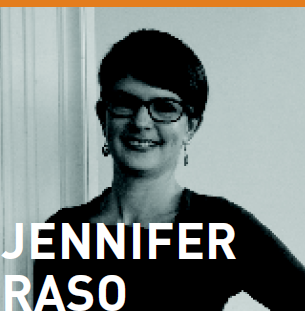 Jennifer Raso
Jennifer Raso
Law and Technology/ Administrative Law Expert
Jennifer Raso completed her SJD at the University of Toronto, where she studied as a SSHRC Bombardier Scholar and an Anisman Fellow. During her doctorate, she was a junior fellow at the Centre for Criminology and Sociolegal Studies, a visiting researcher at UC Berkeley's Center for the Study of Law and Society and a senior editor of the Journal of Law and Equality.
As a postdoctoral scholar, she has also been a visitor at Yale Law School's Information Society Project.
Before her doctorate, Raso articled and practiced administrative and human rights law with the City of Toronto's Legal Services Division. She received her LLB from the University of Victoria, where she was awarded the McIntyre Medal, and her BA from Concordia University.
Raso's research explores discretion, data-driven technologies and administrative law, focusing on lastresort benefits programs. This groundbreaking work was recently recognized at the University of Cambridge Public Law Conference, where it was awarded the Richard Hart Prize for outstanding early career scholarship. Raso's work appears in the Canadian Journal of Law and Society, the Political and Legal Anthropology Review, the Journal of Law and Equality and the Windsor Yearbook of Access to Justice.
Raso is excited to build on UAlberta Law's history of innovative teaching and to engage students in the study of core legal questions and their contemporary manifestations.
"As a new faculty member, I look forward to exploring cutting-edge public law issues with students and contributing to the faculty's growing scholarly community," she said.
She's also keen to be part of a faculty that studies law from socio-legal, Indigenous and historical perspectives.
"I hope to build bridges across the broader university, including sociology and computer science, to deepen our understanding of the relationships between law, society and technology."